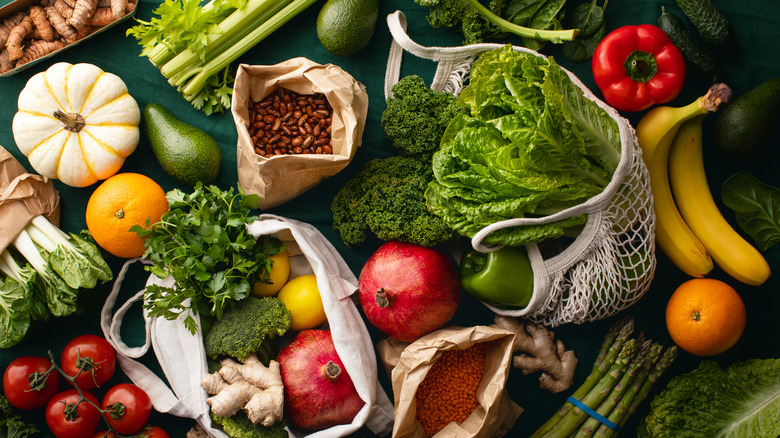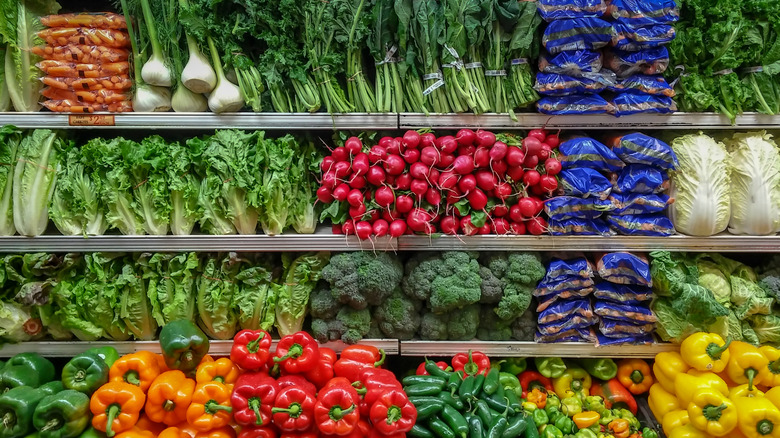Why The Price Of Some Produce May Temporarily Climb Even Higher
As many consumers have experienced firsthand, the price of groceries in the U.S. has skyrocketed due to inflation, reported CNBC. Unfortunately, those costs may get even higher in the coming weeks — and the reason why is a real shocker.
According to CNN Business, Texas Gov. Greg Abbott recently responded to Biden's decision to end Title 42 — which blocked migrants from entering the U.S. during the pandemic — by ordering "enhanced safety inspections" of commercial trucks entering the country from Mexico. But this already-reversed policy will directly affect the price of produce at your local grocery store. Ostensibly, the order was intended to stop the import of illegal goods and counteract human trafficking.
In practice, however, it created a massive gridlock, with commercial trucks stuck at the border for as many as 30 hours. In the process, produce carried in these trucks was left to spoil, and grocery stores in the U.S. lacked their usual supply.
Why will produce prices increase?
Abbott reversed the policy on April 15 in response to intense criticism, reported the AP. But even though the increased inspections have ceased, it doesn't mean that supply chains will return to normal immediately. According to CNN, the gridlock resulted in a loss of $240 million for fruit and vegetable producers. Consumers will ultimately be the ones to pay this price, as the low supply and industry losses will be reflected in higher food costs.
"This is not just a localized issue," said Jerry Pacheco, president and chief executive officer of the Border Industrial Association, per CNN. "It's going to hit you in St. Louis or up in Seattle. We're connected to a global supply chain." Specifically, the cost of strawberries, avocados and asparagus are expected to rise almost immediately, especially in the Midwest and Northeast.
According to CNN, it could take several weeks for the supply chain to recover from Abbott's call for increased inspections.

